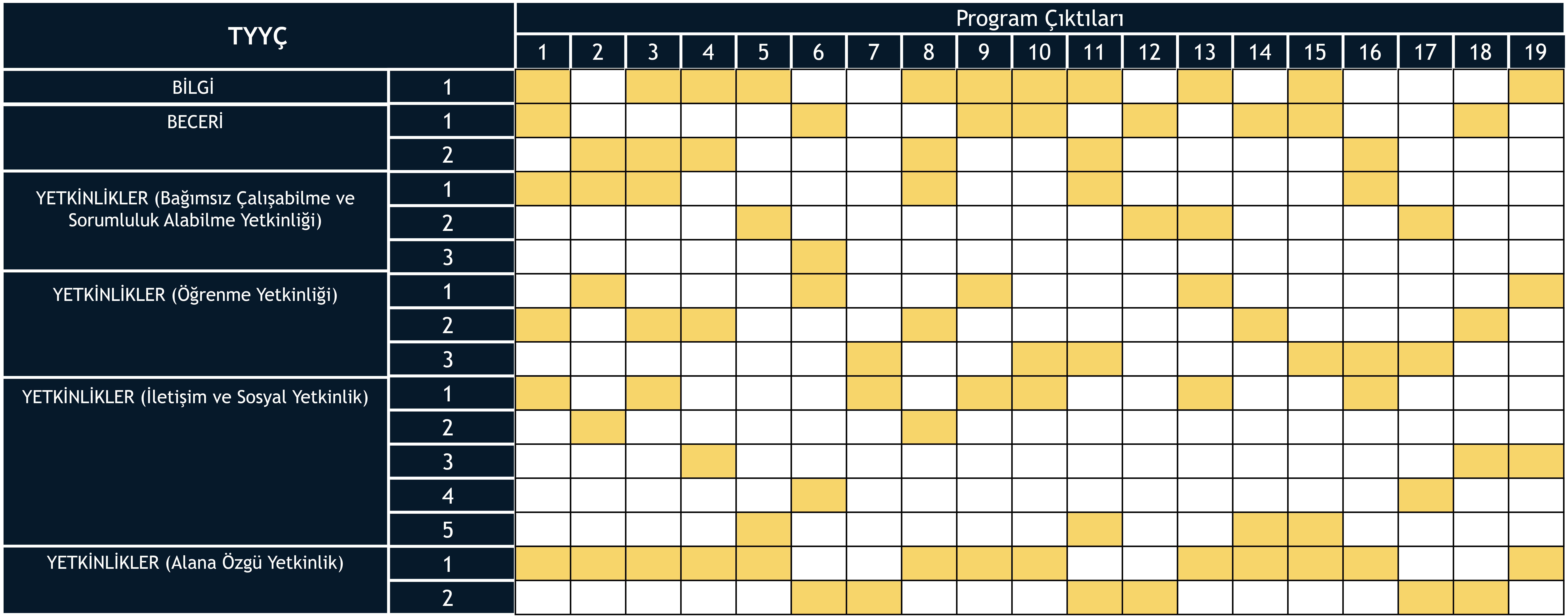
1) ORGANIZATION
The department, which was established in 2009 under the name of Yozgat Faculty of Arts and Sciences, Department of Archaeology, started its education and training program in 2017. It continues its undergraduate education under the name of Yozgat Bozok University, Faculty of Arts and Sciences, Department of Archaeology.
2) DEGREE EARNED
Those who complete the undergraduate education in the department receive the title of ARCHEOLOGIST.
3) LEVEL OF DEGREE (Associate, Bachelor, Master, Doctorate)
License
4) ADMISSION AND REGISTRATION REQUIREMENTS
The department accepts students with TM (Turkish - Mathematics) score according to the results of the central university exam.
5) RULES ON RECOGNITION OF PREVIOUS LEARNING (formal, in-formal, non-formal)
In addition to formal education, in-formal education is also utilized during archaeology education.
6) QUALIFICATION REQUIREMENTS AND RULES
In order to graduate from the undergraduate program, Yozgat Bozok University Undergraduate Education and Examination Regulations must fulfill the requirements. Students who take the courses in the program curriculum and pass all the exams of these courses (reaching at least 2.0 GPA and taking courses equivalent to 240 ECTS), as well as fulfilling the requirements for application and research, such as the graduation thesis required by the program, are considered to have concretely fulfilled the above-mentioned objectives and graduated. No internship or similar studies are required to graduate from the program. The codes, names and credits of all compulsory and elective courses that students must take, taking into account the Turkish Higher Education Qualifications and Field Qualifications, it is compulsory to take 240 ECTS courses in 8 semesters, provided that 30 ECTS per semester and to be successful.
7) PROGRAM PROFILE
The field of study of the department is Prehistory, Protohistory and Asia Minor Archaeology, Classical Archaeology.
8) EMPLOYMENT PROFILES OF GRADUATES
Students who are entitled to receive the title of archaeologist; They can work as academicians in higher education institutions. At the same time, they are employed in various public and private business lines such as archaeologist in museums and ruins affiliated to the Ministry of Culture and Tourism, archaeologist in municipalities, expert archaeologist in Cultural Heritage Conservation Boards, expert archaeologist in KUDEP, consultant archaeologist in restoration and conservation laboratories and private companies, archaeologist in archaeological excavations and researches.
9) TRANSITION TO HIGHER DEGREE PROGRAMS
Students who have successfully completed the undergraduate program can apply to study in graduate programs.
10) EXAMS, MEASUREMENT AND EVALUATION
The raw achievement score is calculated by adding 60% of the semester or year-end exam score and 40% of the average midterm exam score. Success grades are determined by the relative evaluation method, the principles of which are determined by the Senate, using raw success scores.
11) GRADUATION REQUIREMENTS
To have successfully completed at least 240 ECTS credits as a result of 8 semesters of education determined by the department.
12) TYPE OF WORK (Full Time, E-Learning)
Full-Time / Full-Time
13) ADDRESS AND CONTACT INFORMATION (Program Head, ECTS/DS Coordinator)
Assoc. Prof. Dr. Hacer SANCAKTAR (Div. Bk., Erasmus Coord., Bologna Coord.) Department of Archaeology, Faculty of Arts and Sciences, Yozgat Bozok University Erdoğan Akdağ Campus Atatürk Yolu 7th Km 66100 Yozgat. E-posta:hacer.sancaktar@bozok.edu.tr Tel: 0 (354) 242 10 21 / 2662
14) DEPARTMENT FACILITIES
In all vocational courses, lecturing on the subject accompanied by images, ensuring the student's participation in the course with reading assignments and creating a discussion environment, field studies (excavations and surveys) and practice.
PROGRAM OUTCOMES
1- Has advanced theoretical and practical knowledge supported by course materials containing up-to-date information, applied tools and materials, research methods and techniques applied in field studies and other sources based on the qualifications gained in the field of archaeology.
2- To be able to examine, analyze, discuss concepts, ideas and data related to the discipline of archaeology with social sciences research methods and develop interpretations based on scientific evidence.
3- Has the knowledge of Prehistoric Archaeology, Protohistory and Prehistory Archaeology, Classical Archaeology.
4- Collects, analyzes and applies information related to the field of archaeology.
5- Follows and shares theoretical and practical knowledge in the field of archaeology.
6- Have the ability to present the theoretical and practical knowledge acquired in the field of archaeology.
7- Have the ability to learn the science of archaeology in a comparative dimension.
8- Gains the ability to use and identify information sources appropriately for archaeological research.
9- Forms a critical consciousness about past cultures and intercultural relations.
10- Gains awareness about the socio-economic structures and lifestyles of past societies.
11- Develops the ability and knowledge to use archaeological research methods to understand past cultures.
12- Works independently as an individual or takes responsibility as a team member to solve complex and unpredictable problems encountered in the field of archaeology.
13- Evaluates and synthesizes the knowledge and skills acquired in the field of archaeology with a critical approach.
14- Uses advanced level of information and technologies together with the computer software required by the field of archaeology.
15- Archaeological research, excavation, etc. architectural and artifact drawing, photography, computer software and hardware required for studies.
16- Has the ability to write by using the knowledge and skills obtained in the field of archaeology correctly.
17- Follows the theoretical and practical information in the field of Archaeology using a foreign language and shares this information with experts and non-experts in the relevant field.
18- Contributes to public awareness by informing people who do not have knowledge about the field on issues related to archaeology and expresses a competent understanding of archaeology.
19- Observes ethical values in studies related to the field of archaeology.
PROGRAM EDUCATION OBJECTIVES
In our age, where the identification and preservation of material culture elements is becoming more and more important, archaeology has become an increasingly important branch of social science. The main purpose of the Department of Archaeology is the academic responsibility for the cultural history of Turkey and neighboring countries. In this respect, the department aims to preserve cultural heritage and contribute to archaeological research on the cultural history of Turkey. At the same time, it is aimed to provide students with a broad and detailed theoretical knowledge on different topics and problems, and to gain experience in terms of practical and technical knowledge through excavations or surveys. In this direction, students will be academically and intellectually advantageous. The main aim of the Archaeology program is to train staff equipped with the basic knowledge of the field in order to meet the need for archaeologists in our country. Another aim is to train staff equipped with the basic knowledge of the field to meet the need for archaeologists in the region. It is necessary to take students in order to contribute to the development of our country, which is a historical paradise, in terms of archaeology and indirectly in terms of tourism and to train new generation archaeologists for the country.There are hundreds of archaeological remains in the Yozgat region that have not yet been identified.In the future, local and foreign scientists who will conduct excavations and research in the region will work with archaeologists who know the region together with the effective and competent students of the archaeology department.Students who follow the courses in the program curriculum and succeed in all exams of these courses, as well as fulfilling the requirements for practice and research, such as the graduation thesis required by the program, are deemed to have concretely fulfilled the above-mentioned objectives.
